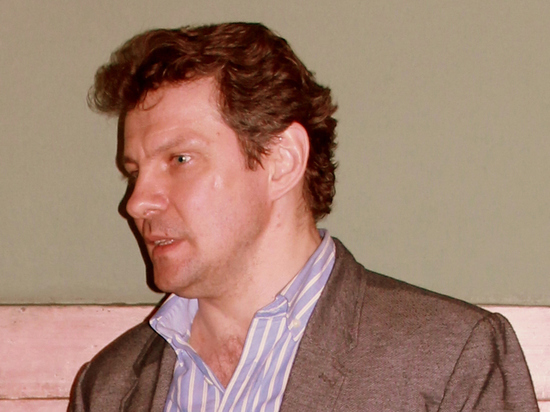Art historian Trubochkin told why radio and cinema cannot “carry the human voice”
[ad_1]

“It seemed that the theater was dead”
In the press center of “MK” recently aired with a theater expert, doctor of art history, professor of GITIS Dmitry Trubochkin. What our interlocutor said on the air could well be deciphered verbatim and published as a separate brochure, but I decided to limit myself to the three most significant semantic blocks.
THEATER & GADGETS – WHO WILL WINN?
– In the 20th century, cinema appeared, it seemed that the theater was dead – nothing happened. Before that, the radio appeared, it seemed that it would carry a signal and a human voice – and now the theater is dead. Then there was sound film, color. But the theater quickly adapts to new forms of existence. Radio led to the emergence of radio theatre. Along with cinema, film broadcasts appeared – and cinematography began to be used on stage. The theater turns everything into theater and theatricality. And inside the theater there is such an archaic fortress, a natural reminder that the main thing is done in communication. In the most technological eras, the theater attracts viewers!
As an example, Trubochkin cited the closure of the world theater for a year during the pandemic, and the Russian theater for a slightly shorter time. And what happened? TV was the first to report this and began to inform about what was happening in the theater. Then the Internet did it. And when the theaters opened, it turned out that they were full of spectators.
YOUNG WITH GADGETS TO THE THEATER WE HAVE THE ROAD
– I have experience of visiting various theaters, experience of traveling to festivals. Our young people are very active and creative, they are interested in theater, because there are lively emotional and mental upheavals. Yes, young people are addicted to gadgets. But I watched them rumble in the hands of fifty-year-old users: with video, with the sound of flipping news. And young people have a culture of using and not just refusing, but temporarily putting the gadget aside. Plus, it is possible to “flow” from the gadget to the stage and back. During performances, QR codes are already being used. There is a vote: how to proceed with the character. Voting summarized – the action goes on. There are theaters that call at the beginning of the performance: please do not turn off your mobile phones!
THE CAPITAL CANNOT BE WITHOUT A PROVINCE
Theater capitals are not only Moscow and St. Petersburg. It’s just that in these two cities, thanks to their financial capabilities and well-established cultural ties, there are many opportunities for professionals. To come there means to discover a lot of new things. But there should be a return flow from Moscow. Without some kind of Brownian movement from the center to the periphery and from the periphery to the center, there can be no normal artistic process. Today there are many aristos who came from the provinces. Take the Vakhtangov Theater or the Moscow Art Theatre. It is customary to think that they are fed from Moscow – Vakhtangov from the Shchukin School, the Moscow Art Theater – from the Moscow Art Theater School. But who comes to these institutes? This year, the Vakhtangov Theater recruited a trainee group, and everyone is from the regions. Capital theaters simply won’t survive without fueling regional talents – and everyone understands this!
[ad_2]
Source link






